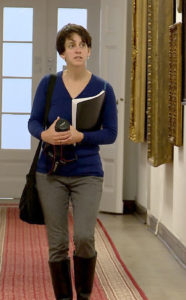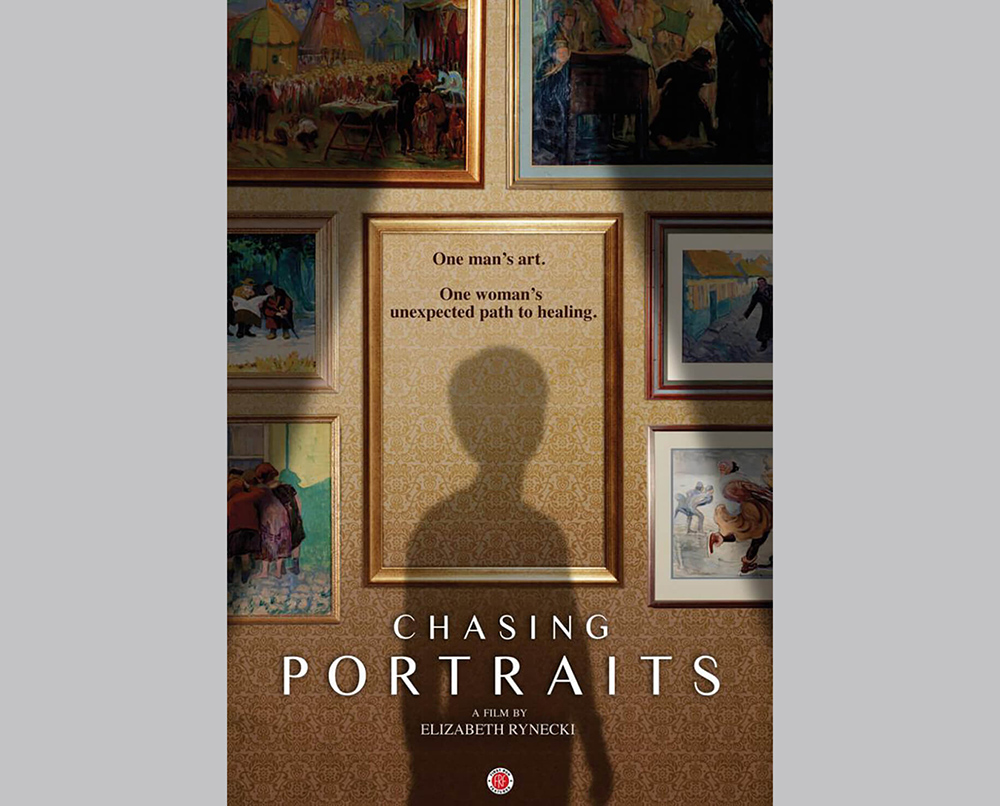The theatrical premiere comes after playing in a number of sold-out festival screenings worldwide including the San Francisco Jewish Film Festival and the New York Jewish Film Festival.

For more than a decade Moshe’s great-granddaughter, Elizabeth, (pictured above) has searched for the missing art, with remarkable and unexpected success. Her commitment was inspired by the obligation she felt to tell the story of her great-grandfather’s paintings.
Spanning three generations, Chasing Portraits is a deeply moving narrative of the richness of one man’s art, the devastation of war, and one woman’s unexpected path to healing. Moshe Rynecki (1881-1943) was a prolific Warsaw-based artist who painted scenes of the Polish-Jewish community until he was murdered at Majdanek concentration camp. After the Holocaust, Moshe’s wife was only able to recover a small fraction of his work, but unbeknownst to the family, many other pieces survived.
For more than a decade Moshe’s great-granddaughter, Elizabeth, has searched for the missing art, with remarkable and unexpected success. Her commitment was inspired by the obligation she felt to tell the story of her great-grandfather’s paintings. Her family lost most everything in the war; given how much of Warsaw was destroyed, and how few Polish Jews survived, it is a miracle that her father, grandparents – and any of her great-grandfather’s paintings – survived at all.
Director’s Statement
I grew up surrounded by my great-grandfather’s paintings; they were prominently displayed on the walls of my family home. I understood from an early age that his art connected me to a history that, while not exactly my own, still overshadowed my life. When I started the project, it felt critical to me to document the history and share the art. It’s been eye opening to see how contemporary politics and a significant increase in anti-Semitic incidents around the world have enhanced the importance and relevance of the film for today’s audiences. My documentary is focused on my great-grandfather’s art and my quest for his lost paintings, but inevitably draws attention to larger themes about the long reaching impacts of war and what it means to be a refugee. I feel like the film is a statement not only about my great-grandfather’s art and issues surrounding Holocaust era looted art, but about the role of art and the artist.
I’m often asked why I am not a claimant fighting for the return of my great-grandfather’s paintings. My great-grandfather painted because he was passionate about the Polish-Jewish community and he wanted to record the people he knew and loved. Getting paintings back is only one form of justice. Being able to share my great-grandfather’s art with others is a form of social and historical justice. Seeing audiences discover his work feels like an enormous win.
I hope that after seeing my great-grandfather’s art, audiences will love it and gain a better understanding of the rich and vibrant world of Polish-Jewish art that was lost during the war. If the film inspires audiences to be curious about their own family history, that would be ideal. I also hope that by sharing my own personal experiences navigating my family’s Holocaust legacy, audiences will begin to see how the effects of war cascade down to subsequent generations.



